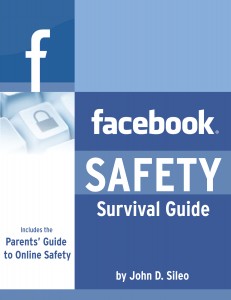On the surface, social networking is like a worldwide cocktail party—full of new friends, fascinating places and tasty apps. Resisting the urge to drink from the endless fountain of information is nearly impossible because everyone else is doing it—connecting is often advantageous for professional reasons, it’s trendy and, unchecked, it can be dangerous.
Beneath the surface of the social networking cocktail party lives a painful data-exposure hangover for the average business. Sites like Facebook and Twitter are now the preferred tool for malware delivery, phishing, and “friends-in-distress” scams while more business oriented sites, like LinkedIn, allow for easy corporate espionage and the manipulation of your employees.
To avoid the cocktail party altogether is both impractical and naïve—the benefits of social networking outweigh the dangers—but applying discretion and wisdom to your social strategy makes for smart business. Follow these 7 Security Secrets of Social Networking to begin locking down your sensitive data.
Posted in Identity Theft Prevention by Identity Theft Speaker John Sileo.
Tags: "Identity Theft, breach, Facebook, John Sileo, linkedin, Prevention, Privacy, Security, Sileo, social networking, twitter
How should my business balance the risks of social media with the rewards of this increasingly dominant and highly profitable marketing medium? That’s the very insightful question that a CEO asked me during a presentation I gave on information leadership for a Vistage CEO conference.
Think of your move into social media (Facebook/Fan/Business Pages, LinkedIn, Twitter, YouTube, etc.) like you would approach the task of helping your fifteen-year-old daughter prepare to drive on her own. You love her more than anything on earth and would do anything for her (just like you will go to great lengths grow your business), but that doesn’t mean you just hand her the keys. Trying to forbid or ignore the movement into social marketing is like telling your teen that they can’t get their license. It isn’t going to happen, so you might consider putting down the denial and controlling those pieces of change that are within your power. The task is to maximize the positives of her newly bestowed freedom while minimizing any negatives; the same is true in social media.
Posted in Fraud Detection & Prevention, Identity Theft Prevention, Online Privacy by Identity Theft Speaker John Sileo.
Tags: Business Fraud, data security, Expert, Facebook, Facebook Risks, John Sileo, linkedin, Online/Social Media Privacy, Privacy, safety, Security, Social Media Business, social networking, Social Networking Business, Social Networking Risks, Speaker, twitter, YouTube
Facebook safety has a direct correlation to your business’s bottom line.
Facebook, and social networking sites in general, are in an awkward stage between infancy and adulthood – mature in some ways, helpless in others. On the darker side of sites like Facebook, LinkedIn and Twitter, scammers and identity thieves are drooling at the sight of this unchecked data playground. In contrast, most social networkers are addicted to all of the friendships they are creating and renewing.
There is no denying that Facebook and other social networking sites have a very luring appeal. You can sit in the comfort of your own home and suddenly have a thriving social life. You can look up old friends, make new ones, build business relationships and create a profile for yourself that highlights only your talents and adventures while conveniently leaving out all your flaws and troubles. It is easy to see why Facebook has acquired over 200 million users worldwide in just over five years. Which is why Facebook safety is still so immature: Facebook’s interface and functionality has grown faster than security can keep up.
Unfortunately, most people dive head first into this world of social connectedness without thinking through the ramifications of all the personal information that is now traveling at warp speed through cyberspace. It’s like being served a delicious new drink at a party, one that you can’t possibly resist because it is so fun and tempting and EVERYONE is having one. The downside? Nobody is thinking about the information hangover that comes from over-indulgence: what you put on the Internet STAYS on the internet, forever. And sometimes it shows up on the front page of the Wall Street Journal, in the hands of a prospective employer or your boss’s inbox. All of the personal information that is being posted on profiles — names, birth dates, kids’ names, photographs, pet’s names (and other password reminders), addresses, opinions on your company, your friends and your enemies — all of it serves as a one-stop shop for identity thieves. It’s all right there in one neat little package and all a scammer has to do to access it is become your “friend”.
Follow these Five Facebook Safety Tips and save yourself the trouble…
5 Facebook Safety Tips
Facebook Safety Tip #1: If they’re not your friend, don’t pretend. Don’t accept friend requests unless you absolutely know who they are and that you would associate with them in person, just like real friends.
Facebook Safety Tip #2: Post only what you want made public. Be cautious about the personal information that you post on any social media site, as there is every chance in the world that it will spread beyond your original submission. It may be fun to think that an old flame can contact you, but now scammers and thieves are clambering to access that personal information as well.
Facebook Safety Tip #3: Manage your privacy settings. Sixty percent of social network users are unaware of their default privacy settings. Facebook actually does a good job of explaining how to lock your privacy down (even if they don’t set up your account with good privacy settings by default). To make it easy for you, follow these steps:
- Spend 10 minutes reading the Facebook Privacy Policy. This is an education in social networking privacy issues. Once you have read through a privacy policy, you will never view your private information in the same way. At the point the privacy policy is putting you to sleep, move on to Step 2.
- Visit the Facebook Privacy Help Page. This explains how to minimize all of the possible personal information leakage that you just read about in the privacy policy. Once you understand this on one social networking site, it becomes second nature on most of the others.
- Now it is time to customize your Facebook Privacy Settings so that only information you want shared, IS shared. This simple step will reduce your risk of identity theft dramatically.
Facebook Safety Tip #4: Keep Google Out. Unless you want all of your personal information indexed by Google and other search engines, restrict your profile so that it is not visible to these data-mining experts.
Facebook Safety Tip #5: Don’t unthinkingly respond to Friends in Distress. If you receive a post requesting money to help a friend out, do the smart thing and call them in person. Friend in Distress schemes are when a thief takes over someone else’s account and then makes a plea for financial help to all of your friends (who think that the post is coming from you). As with all matters of identity, verify the source.
Following these 5 Facebook Safety tips are a great way to prevent an information-sharing hangover.

The best way to protect you and your children from Online threats is to educate yourself about Facebook, Twitter, MySpace and other online social networking utilities. We recently published the Facebook Safety Survival Guide (with Parents’ Guide to Online Safety) with that exact goal in mind. Social networking is immensely powerful and is here for the long run, but we must learn to harness and control it.

John Sileo is the award-winning author of Stolen Lives, Privacy Means Profit and the Facebook Safety Survival Guide. His professional speaking clients include the Department of Defense, the FTC, FDIC, Pfizer, Prudential and hundreds of other organizations that care about their information privacy. Contact him directly on 800.258.8076.
Posted in Online Privacy by Identity Theft Speaker John Sileo.
Tags: Facebook, Facebook Safety, linkedin, Must Read, Online/Social Media Privacy, Privacy, social networking, twitter













